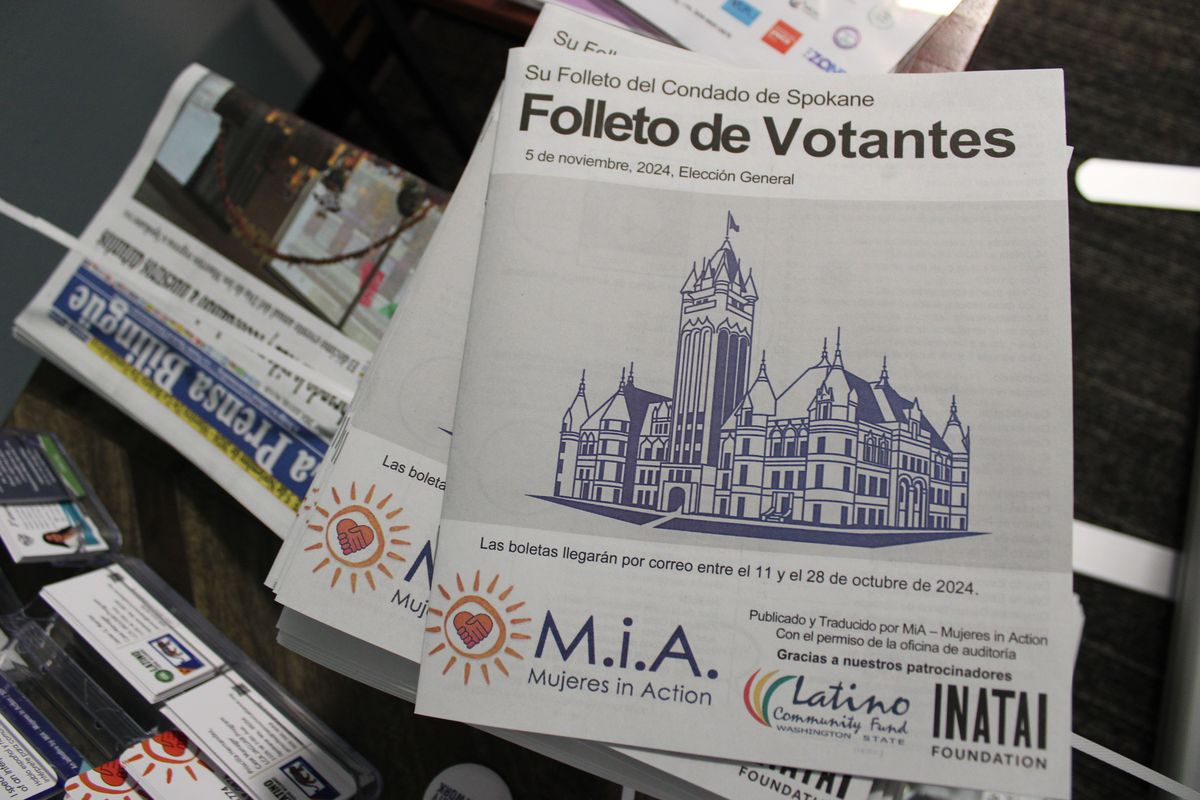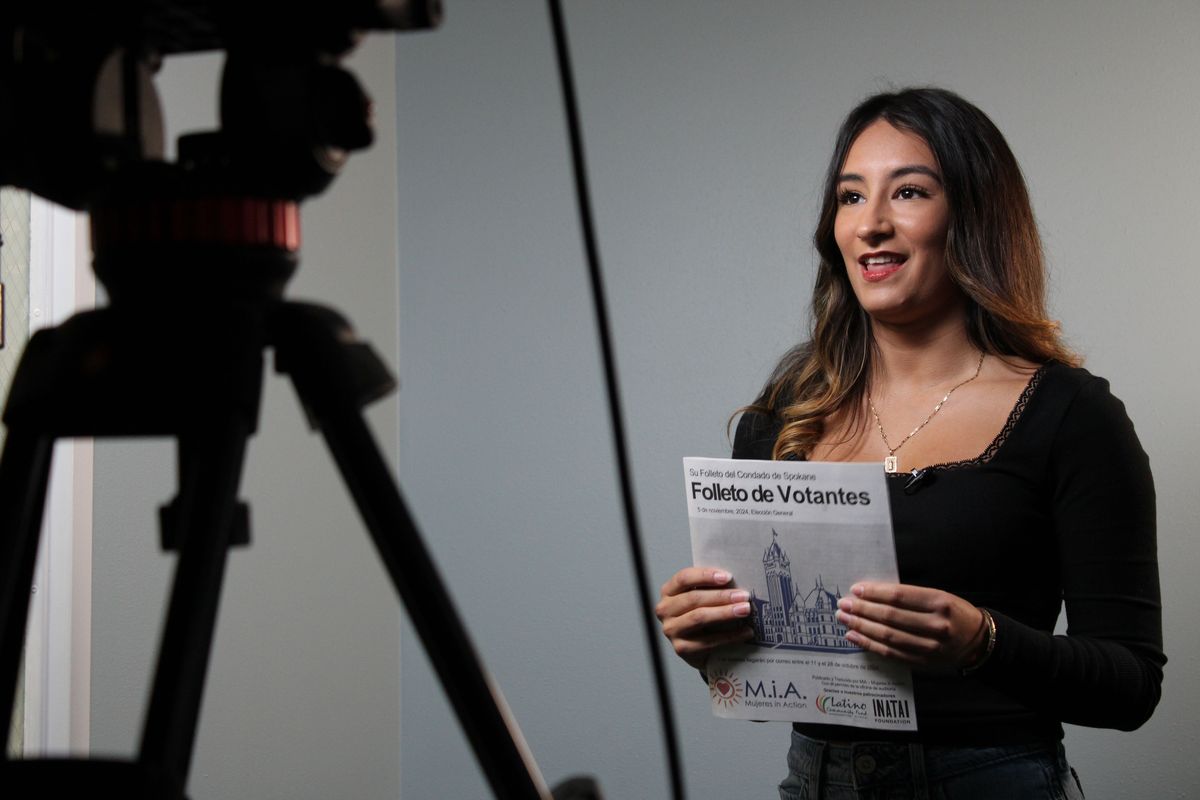‘Our community deserves resources’: Mujeres in Action releases Spanish-language voter pamphlets, bilingual voter information videos coming next week
Jacquelyn Garcia-Angulo, community organizer of Mujeres in Action, holds up a translated voter pamphlet Wednesday while filming an informative video on the importance of voting. (Monica Carrillo-Casas/The Spokesman-Review)
In 2020, about 65% of Latinos in Washington were eligible to vote but didn’t register.
Some could argue it’s because the registration is hard to understand.
“I speak English, I read English, and sometimes it’s very difficult to read those things because it’s very confusing sometimes,” said Maria Gaines, who’s from Panama and the publisher of La Prensa Bilingue. “I’ve been living here for more than 30 years already and still have problems.”
A local nonprofit is trying to change that.
For the first time, Mujeres in Action released a translated voter pamphlet in Spanish to increase voter involvement and are distributing copies to nonprofits and schools the Spokane area.
This includes Latinos en Spokane, Nuestras Raices Community Center and the latest edition of La Prensa Bilingue, a monthly bilingual newspaper in Spokane.
Jacquelyn Garcia-Angulo, community organizer of Mujeres in Action, said the nonprofit will also release six videos in English and Spanish about the importance of voting starting Monday on the group’s website.
“It takes time, and it takes work, but, you know, there is someone out there that is willing to do it, and we wanted to really showcase that we can do it,” Garcia-Angulo said. “Our community deserves to have resources just like everyone else.”
Garcia-Angulo said MiA started brainstorming ways to make voting information more accessible after concerns of misinformation and lack of resources in Spokane.
Up until last week, she said she spent an average of 40 hours on translating the pamphlet since the end of September when the official voter pamphlet was published.
Garcia-Angulo said MiA received support through grants from the Latino Community Fund of Washington, an organization in Yakima, and the Inatai Foundation in Seattle.
“This is a super important election year, and we could not wait to have access to such a crucial resource since we know our elected officials have power to change lives,” Garcia-Angulo said.
And although they just released the translated pamphlets, they’ve already generated excitement within the Latino community.
“A lot of people are really excited about this because some people just got citizenship right before the election, or they didn’t get to vote. This is their first big election that they’re voting in, you know?” Garcia-Angulo said.
Gaines, publisher of the bilingual newspaper in Spokane, said she also hopes this will help squash voter misinformation in Spokane’s Latino community and said she’s received calls with community members sharing how happy they are to hear about the pamphlets.
“The voters, I mean, they are very happy about that because they can read it in Spanish,” Gaines said. “I was talking to people that I was delivering the paper to and – finally, you know, we can really know what’s going on.”
The League of Women Voters has also released translated voter ballots in nine languages and are accessible through their website.
The league started translating the ballots in 2020 to help increase voter comprehension for eligible community members who are newcomers to the area and are still learning the English language.
The sample ballots are translated to the following languages: Spanish, Russian, Vietnamese, Arabic, Chinese, Swahili, Ukrainian, Dari and Kinyarwanda.
“I’m so very thankful to both organizations and to people who have such heart in wanting to help their fellow voters get good information,” said Vicky Dalton, Spokane County auditor.
Dalton said Spokane doesn’t mandate translations and haven’t had the resources to make it happen in the past, however, they will be linking information to translated materials on their website to help reach community members.
Washington’s Latino population continues to increase, particularly in the central Washington counties of Adams, Franklin and Yakima, according to a 2020 Latino Policy and Politics Initiative report.
It also states an estimated 357,000 Latinos in Washington were registered to vote during the 2020 election, representing 8.5% of registered voters in the state and 1.98% of all Latino registered voters in the country.
“We hope that this could be a step to other communities getting things translated in their languages too, because, if you do or you don’t meet a certain threshold of non-English speakers, that shouldn’t be an excuse to why someone shouldn’t be able to get resources,” Garcia-Angulo said.


